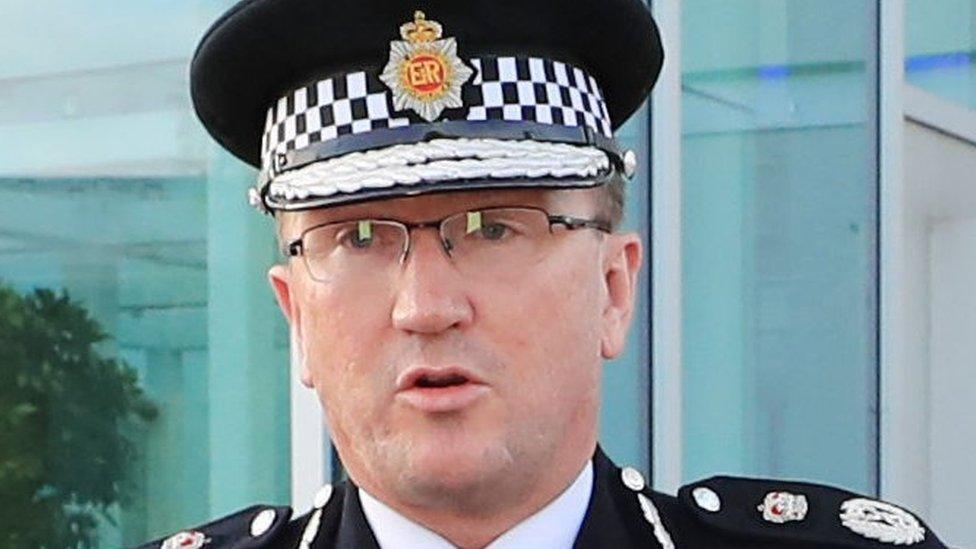How has the arena attack changed Manchester?
- Published
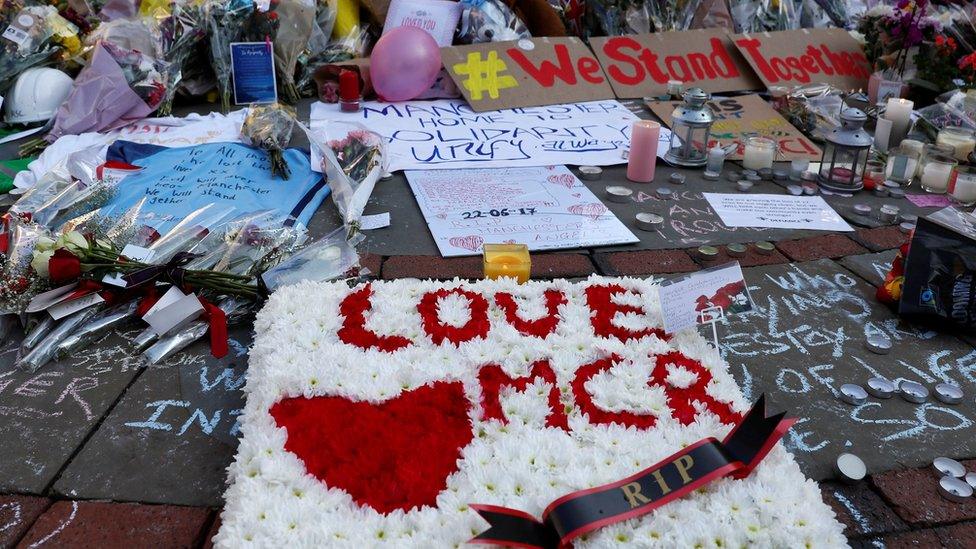
Hundreds of floral tributes were left to those killed in the arena attack
It has been six months since 22 people were killed and hundreds more injured in the suicide bombing at Manchester Arena. BBC News talks to people about how the city has changed since the attack.

'This is our city'
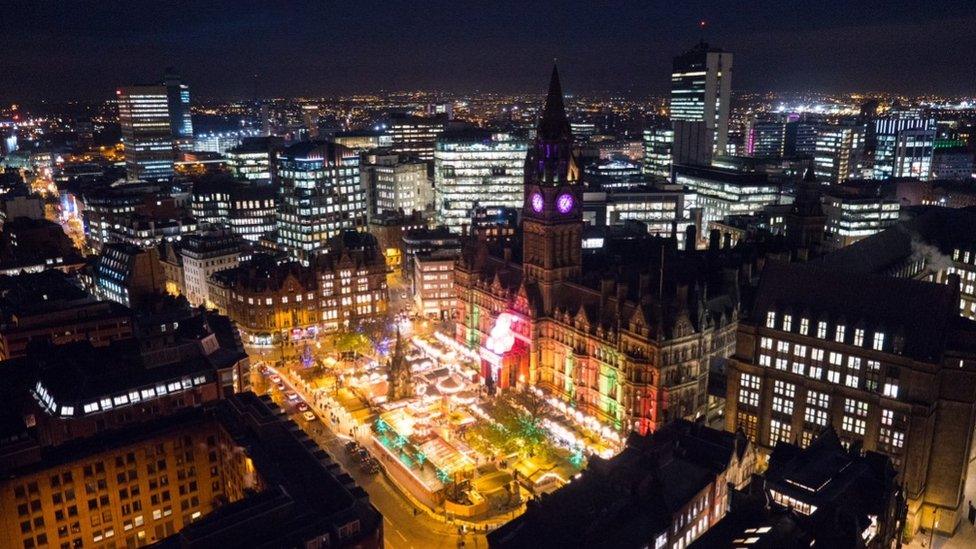
The Christmas market in Manchester attracts millions of visitors every year
At the Christmas market in Manchester's Albert Square, shopper Nicola Depetrillo said people were "defiant" in the wake of the terror attack on 22 May.
"I think it's the same for everybody now, life's changed for us," she said.
"It will be in the back of your mind all the time and you are more aware of what is around you. But you've got to go about your everyday life. You can't stop going out.
"Why should we stay away? This is our city."
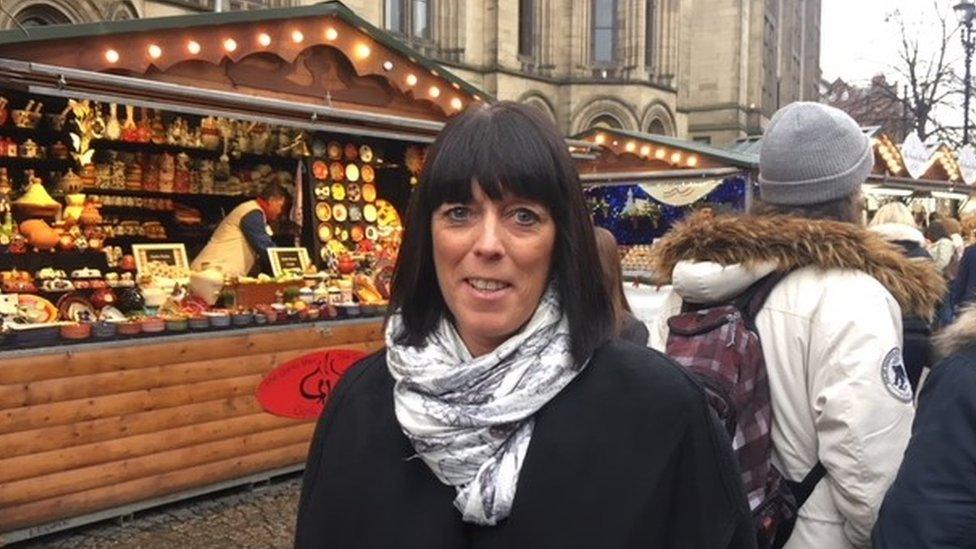
Nicola Depetrillo said life had changed since the attack but it would not stop her going out
Charlotte Powell said she recently took part in an event which involved chasing people in the city centre while collecting clues.
She described how one man thought they were running out of fear and began sprinting with them.
"His face was shocked and you could see the fear. He said 'I thought it was another attack' and all we were doing was running down the road," she said.
"So people are a bit edgy."
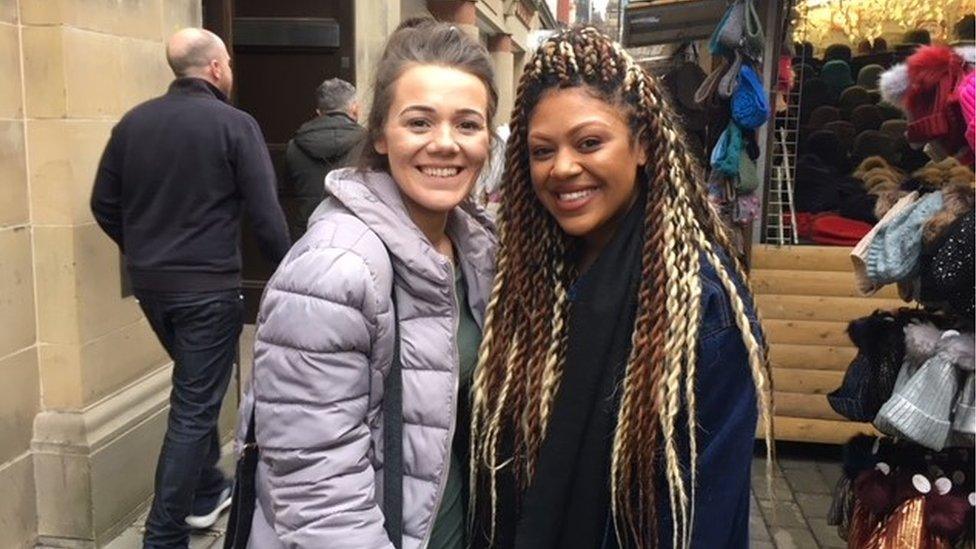
Charlotte Powell and Tibyan Sanoh said they felt people were scared of another attack
Tibyan Sanoh was on the tram when the attack happened and heard the bang as the bomb exploded in the arena.
She said: "For a couple of weeks it was really scary. But on the whole I feel like everyone's just got back to normal, which is strange.
"When something happens people automatically think it's a terrorist attack. But aside from that I feel Manchester is a hard-faced city anyway, so you just crack on."
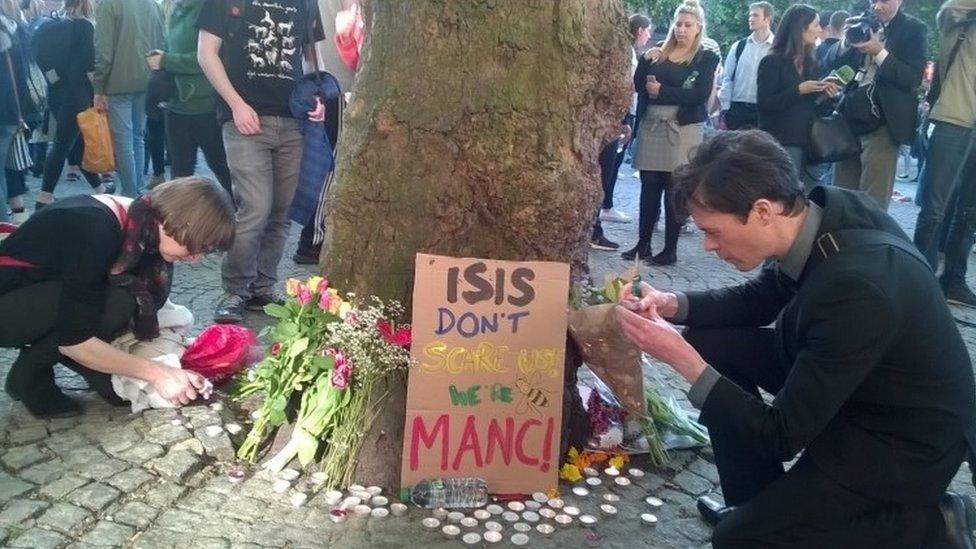
The city centre was filled with candles and tributes in the aftermath of the attack
Catherine Jones, from Cheadle Hulme, said on Remembrance Sunday a cannon fired to mark the beginning of the silence made her jump.
"My immediate reaction was it was a bomb again. You think about it more in the city centre when you're in enclosed shopping centres. I'd rather be out where you can run if it happens again."
She said people were more vigilant and the attack had increased awareness around reporting anything suspicious.
"We wouldn't stop coming in to Manchester because of it [though]. Life has to go on."
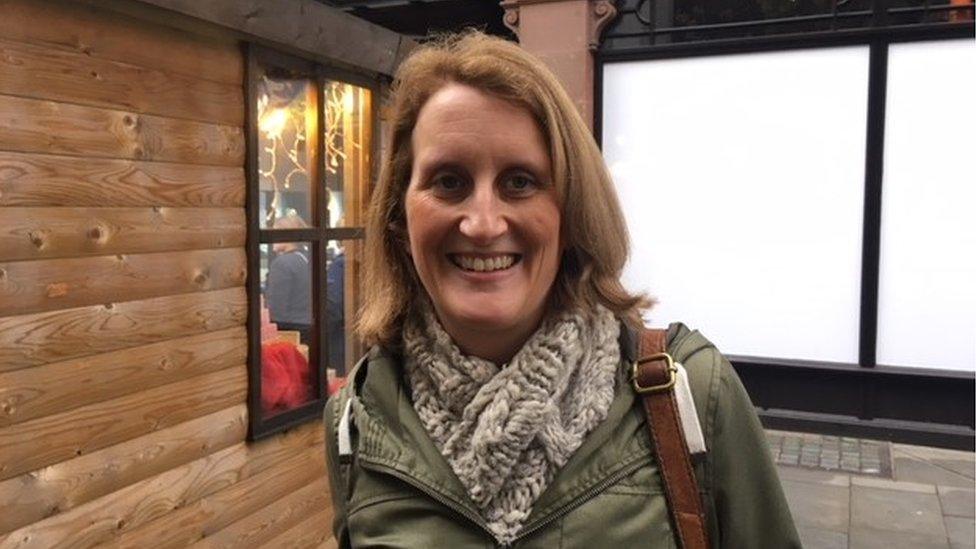
Catherine Jones said she is more vigilant since the attack

'It is more secure'
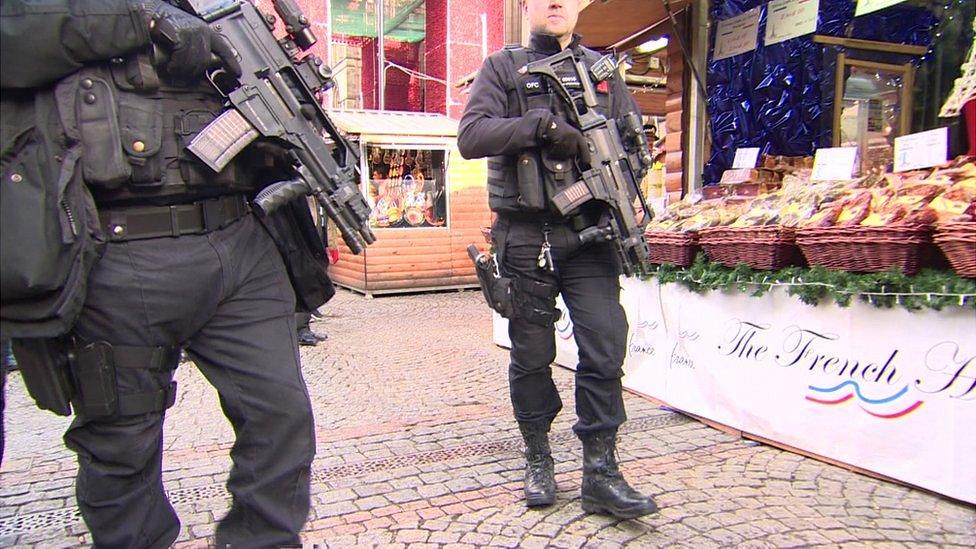
The additional security measures were not in response to any specific threat, Greater Manchester Police said
As visitors enjoy German sausages at the markets and sip mulled wine, they are being joined by armed police.
Greater Manchester's mayor Andy Burnham announced officers would for the first time patrol the market to provide the "reassurance people will want".
Armed officers have also been deployed to Manchester Airport and events such as the Great Manchester Run.
Hanouf Alosaimi, who was visiting the market, said: "If I see armed police, everything is safe and good. When I see police everywhere, everything is secure and I am very happy with it.
"[I think Manchester in general] is more secure. I feel very, very safe."
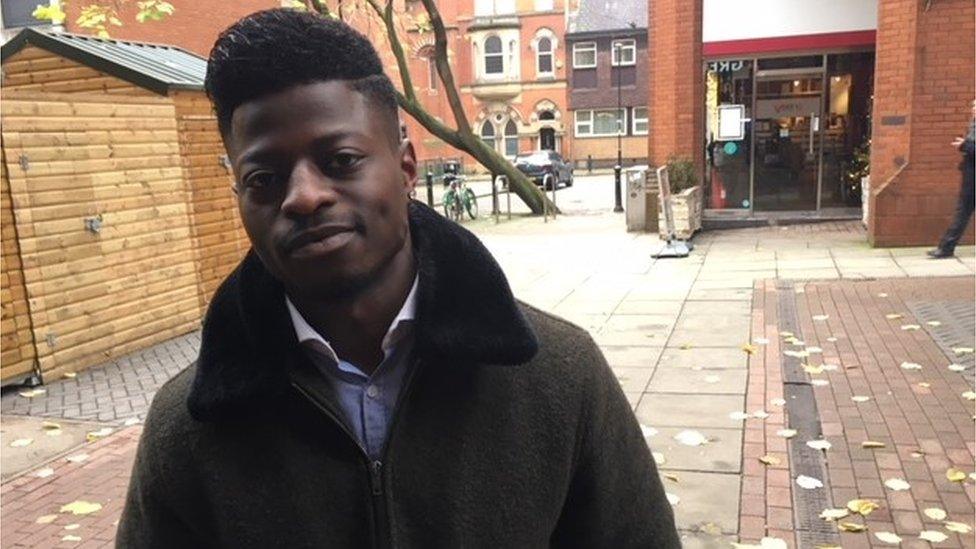
David Adu-dwumaa said security has since been "massively vamped up"
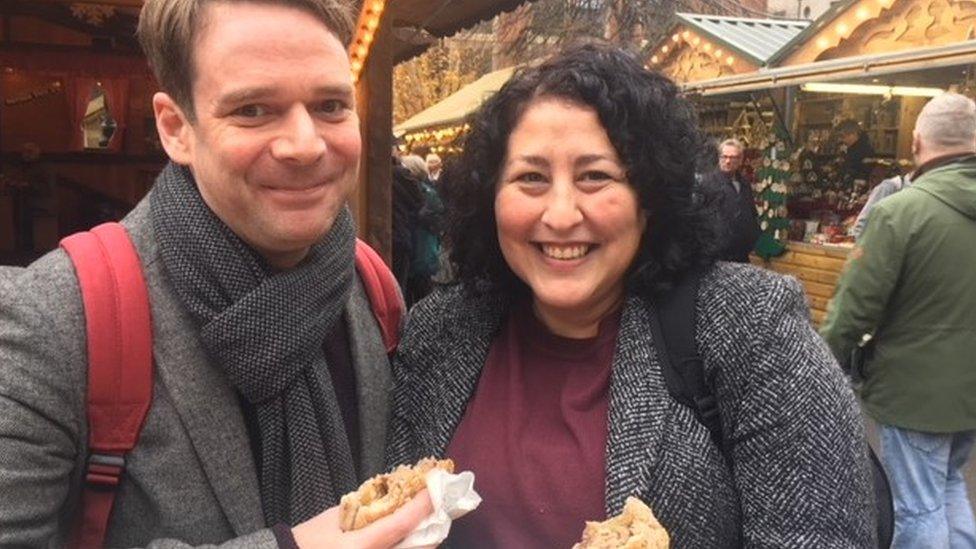
Stephen Morrisroe and Caniko Behdjet said Manchester has a "you won't knock us down" attitude
"Security has been massively vamped up," says David Adu-Dwumaa who works in the city centre but lives in Leigh.
"Some people would see it and be paranoid about what could happen, but it can always happen, so I think it's better for [reinforcements] to be there."
However, Caniko Behdjet, from Whitefield, said she felt "concerned, rather than reassured and protected" when she saw police with guns.
"As soon as I got off the tram there was something over the loud speaker about keeping your belongings with you or they will be destroyed. It makes you feel a bit uneasy."
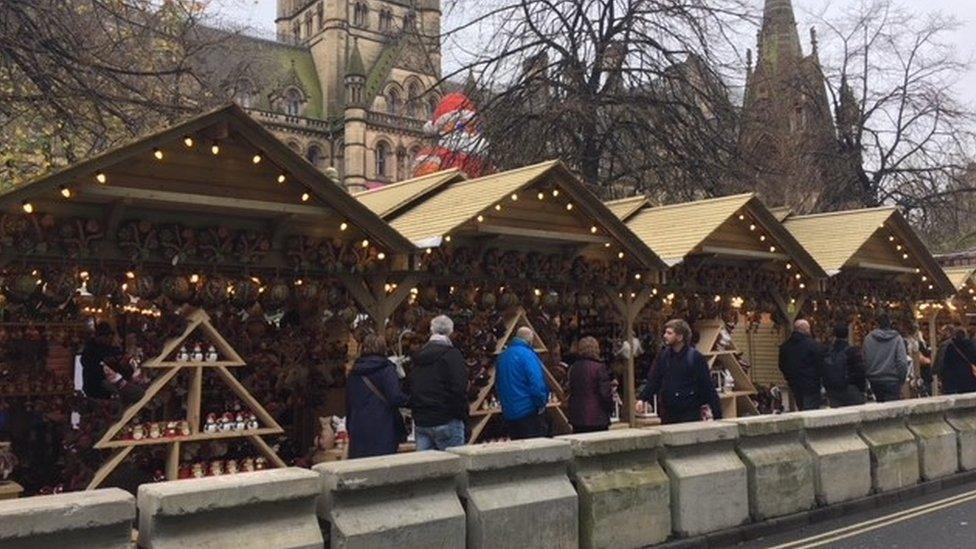
New security measures, such as concrete barriers, have been put in place in the city centre
Barriers have also been put up at key locations in the city centre.
Councillor Pat Kearney said he had visited the market in Berlin where a lorry ploughed into shoppers and killed 12 people and had "learned lessons".
"A year or two ago we wouldn't talk so openly about the security measures. But now I think the public actually want to be reassured that the council and police have thought through the security," he added.
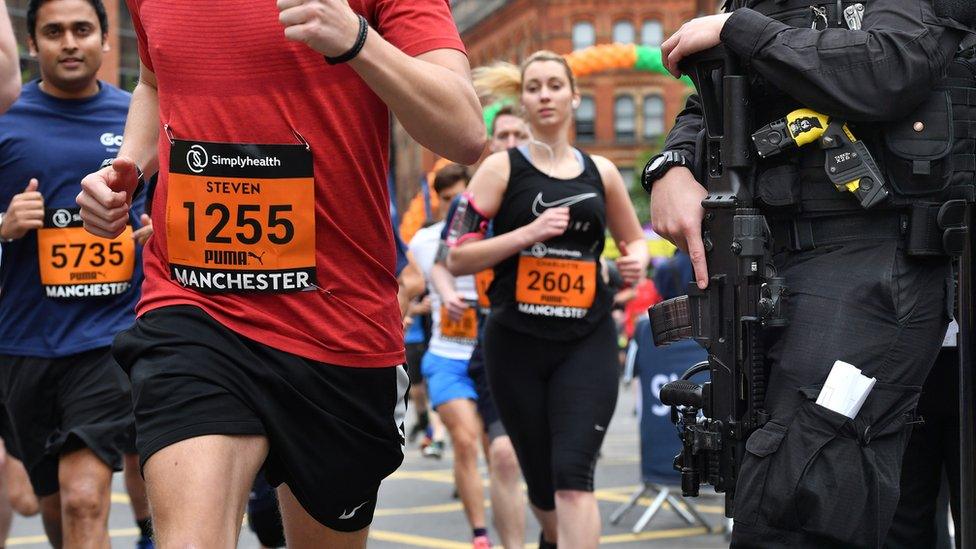
Armed police watched over runners during the Simplyhealth Great Manchester Run

Tourism 'as high as ever'
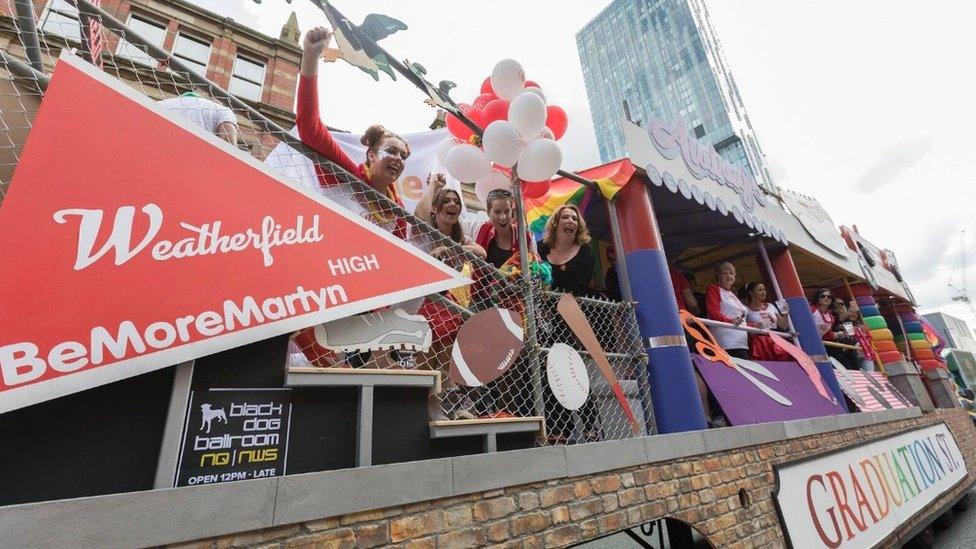
Thousands attended Manchester's Pride festival which featured Coronation Street's float in memory of attack victim Martyn Hett
Greater Manchester Chamber of Commerce (GMCC) reported an "immediate dip" in tourism and hotel bookings following the attack.
But levels of tourism, visitors and conferences are now as "high as ever", according to its head of research and policy, Christian Spence.
"This year's festivals and events in the city centre have all been huge successes and the Manchester 'buzz' is very much in evidence," he said.
Hotel occupancy rates initially "struggled" after the attack but showed signs of recovery by August, a report to Manchester City Council's Economy Scrutiny Committee, external said.
Marketing Manchester said hotel occupancy up to the end of September was nudging ahead of the 2016 figures.
"We are confident we will end the year ahead of last year," a spokesperson said.
This contrasts with hotel performance data following the terror attack in Paris in November 2015 which left 130 people dead, when "mixed performance levels were still evident a year later".

Hate crime spiked
Reports of Islamophobic hate crimes and incidents in Greater Manchester rose by 500% in the month following the attack, police figures showed.
They included a bomb threat, racist taunts, and graffiti.
After this initial spike, and a high of 1,061 reported incidents, the figures have since dropped but remain slightly above 2016 levels.
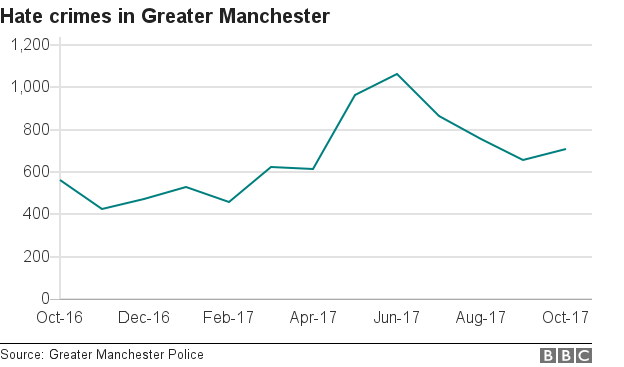
In October there were 711 incidents of reported hate crime, compared to 564 the previous year.
Greater Manchester Police's Assistant Chief Constable Rob Potts said events in Manchester and across the UK have had a "huge impact" on figures, but one month after the attack levels of hate crime "returned to similar levels" as before.
He said hate crime was often under-reported and encouraged people to come forward.

'Psychological impact'
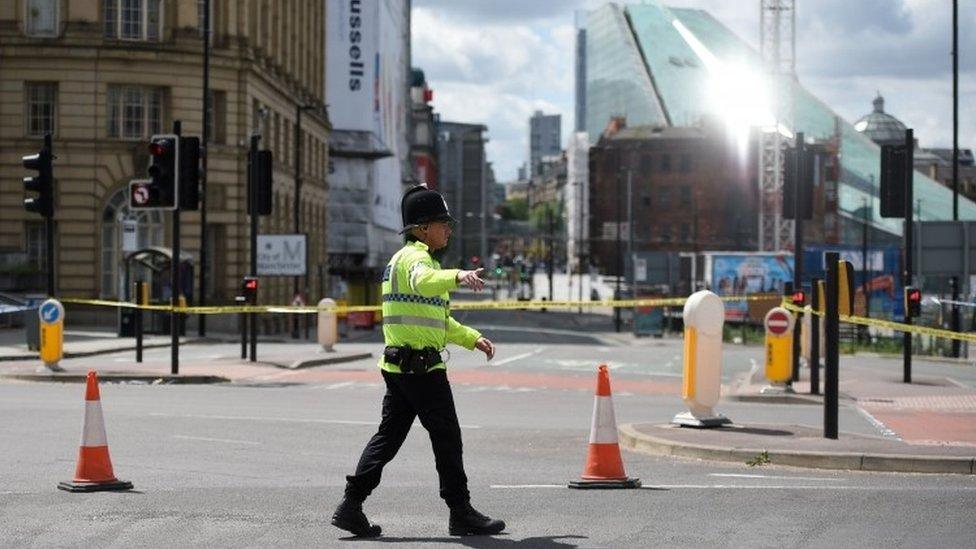
A police cordon was put up around the arena and Manchester Victoria station and some businesses were closed for several days
Firms closest to the arena, which had to be closed for several days in the immediate aftermath of the attack, were offered help by Manchester City Council.
Three applied for business rate relief and received support totalling £7,640, while others were contacted for potential support from a hardship scheme.
Several businesses responded and identified potential losses totalling about £50,000, the Economy Scrutiny Committee report found.
But Mr Spence said that when compared to "the physical devastation" of the IRA bombing in 1996, the biggest impact of the recent bombing was "on those who lost loved ones... those injured... and the psychological impact on people who live and work in the city centre."
- Published15 November 2017
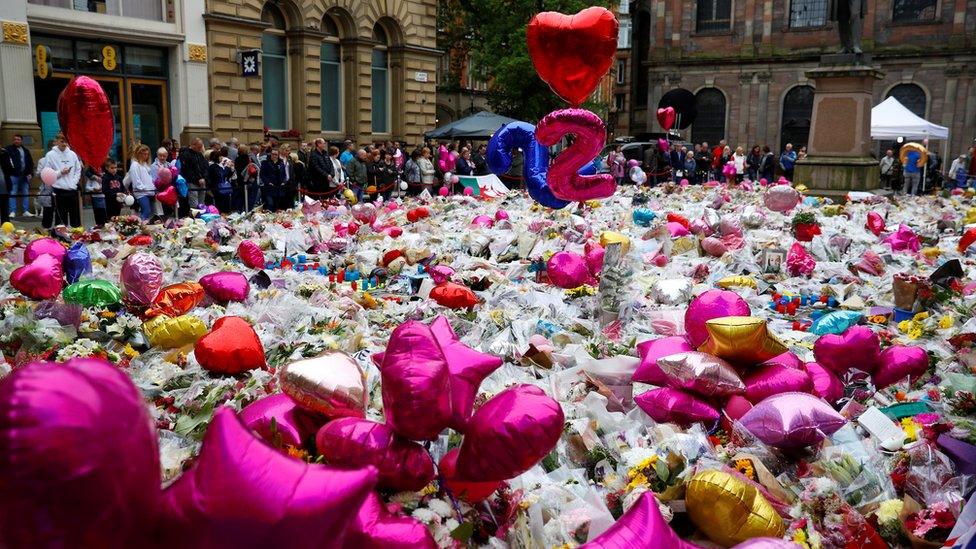
- Published10 November 2017
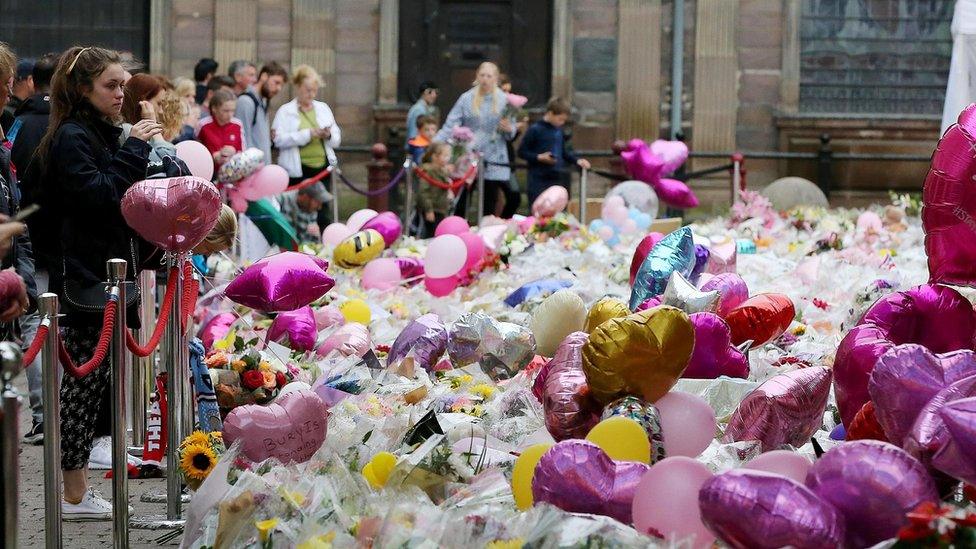
- Published9 November 2017
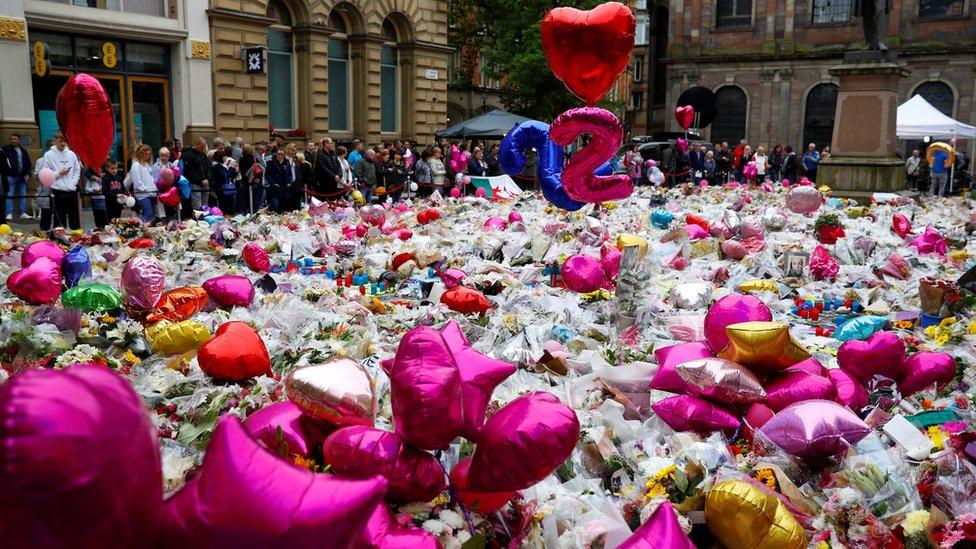
- Published27 October 2017
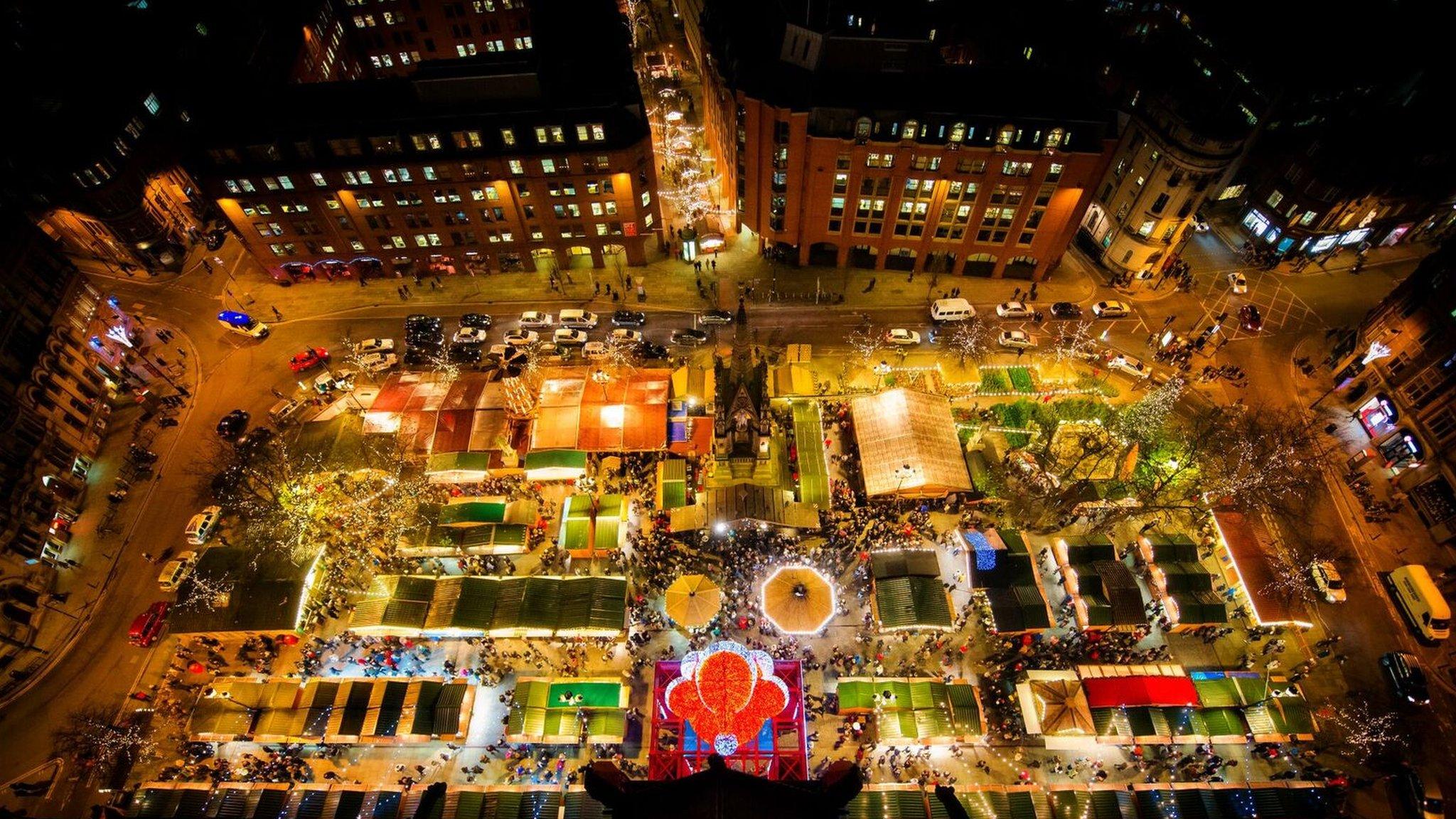
- Published9 September 2017
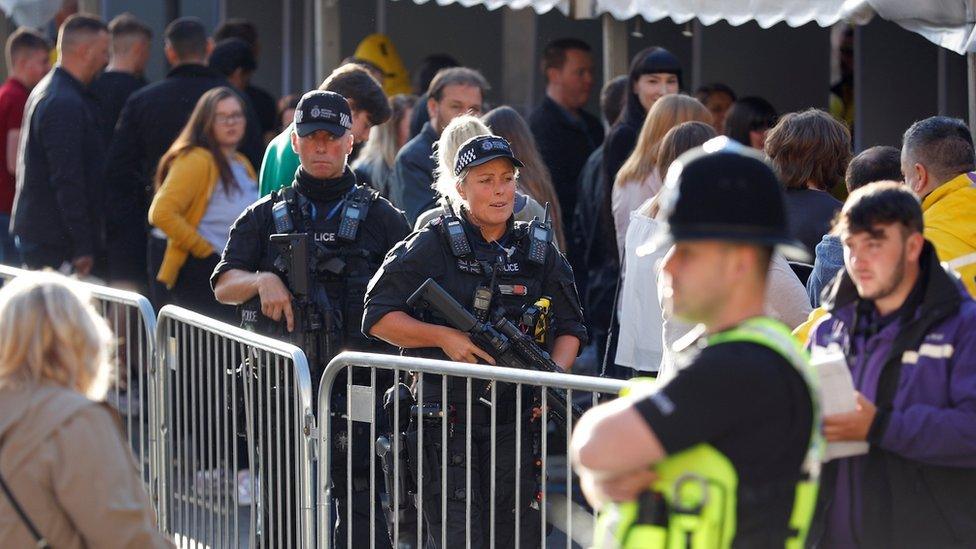
- Published26 August 2017
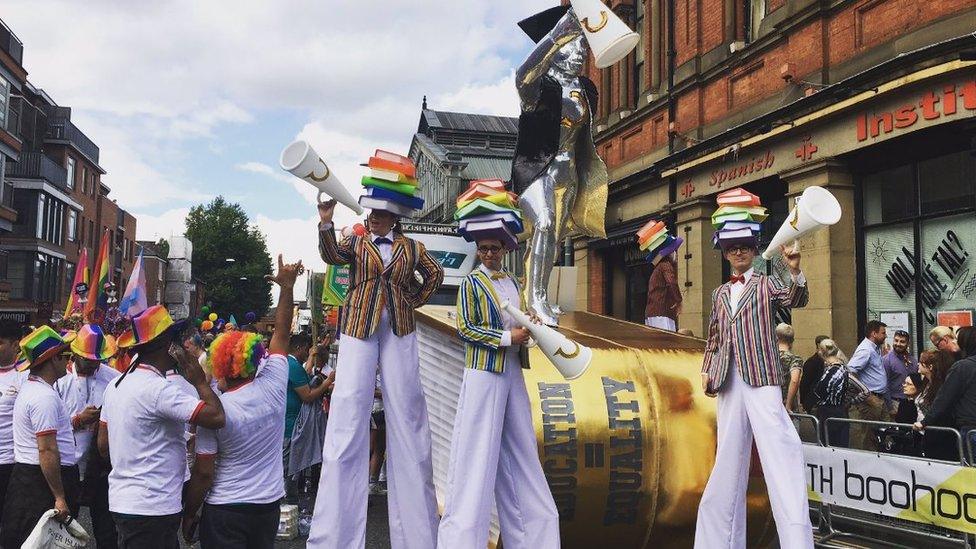
- Published11 August 2017
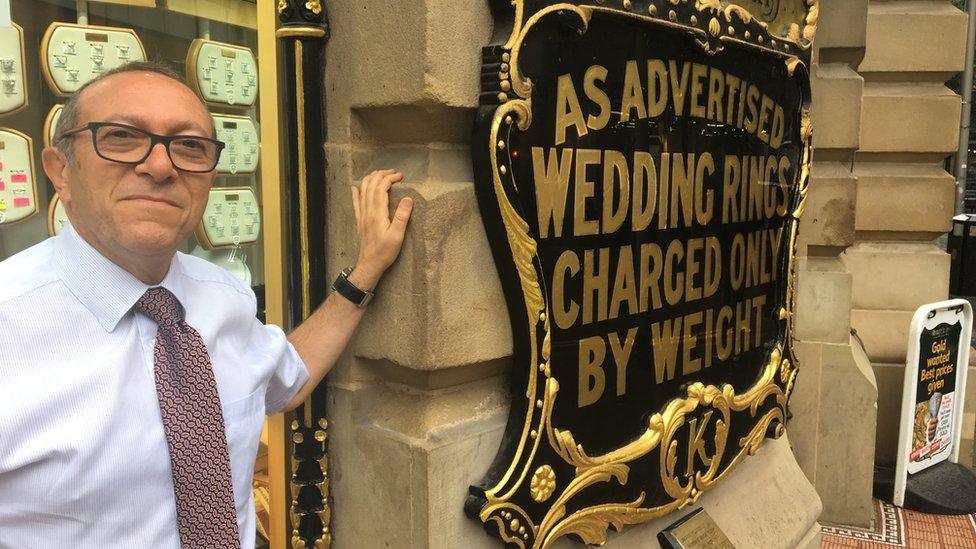
- Published22 June 2017
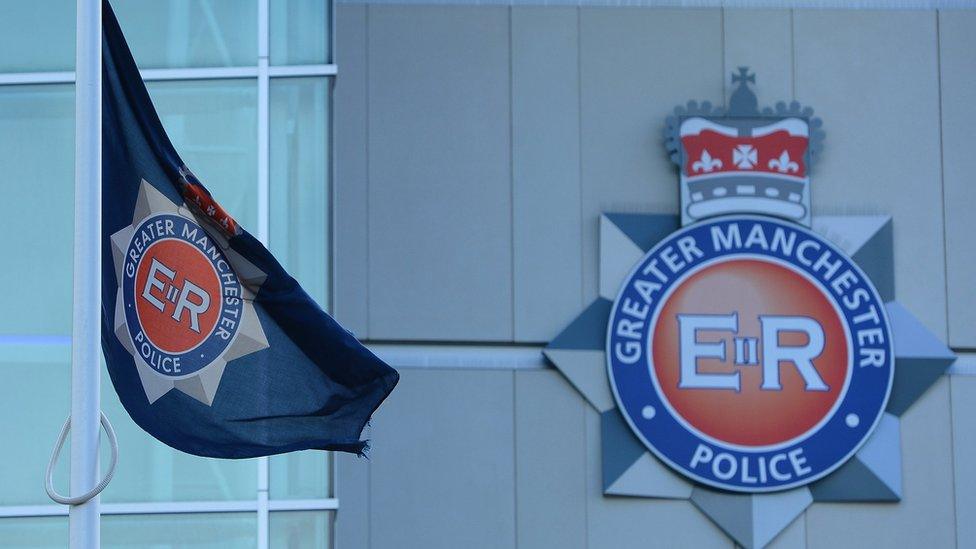
- Published29 May 2017
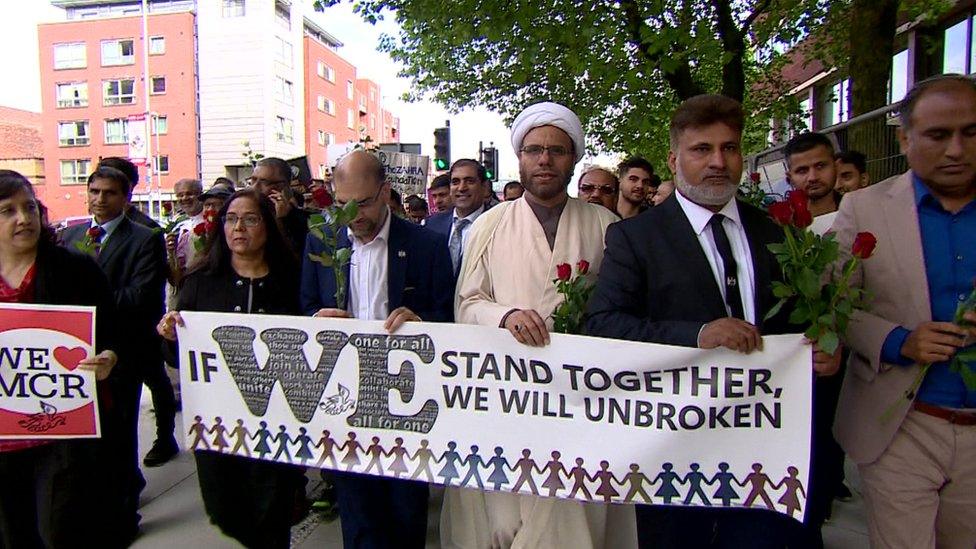
- Published28 May 2017
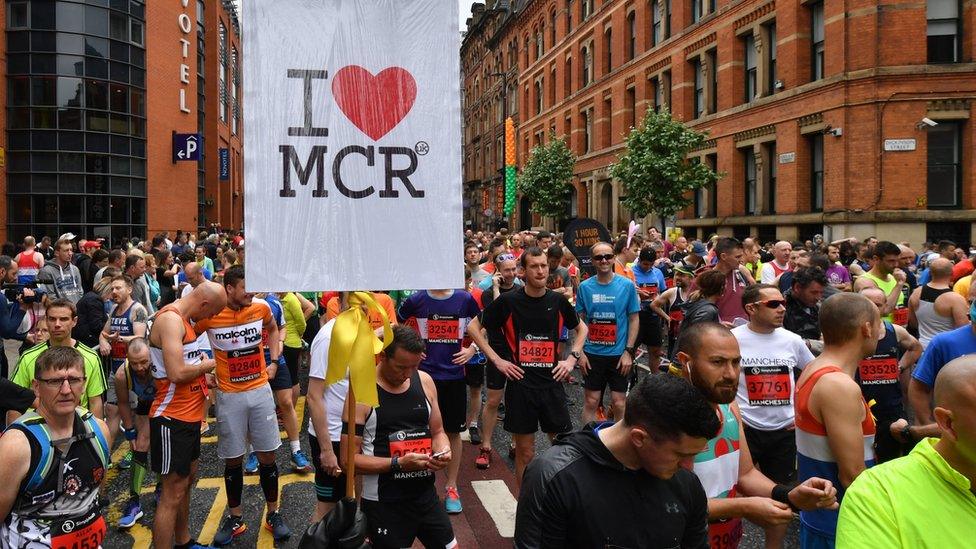
- Published27 May 2017
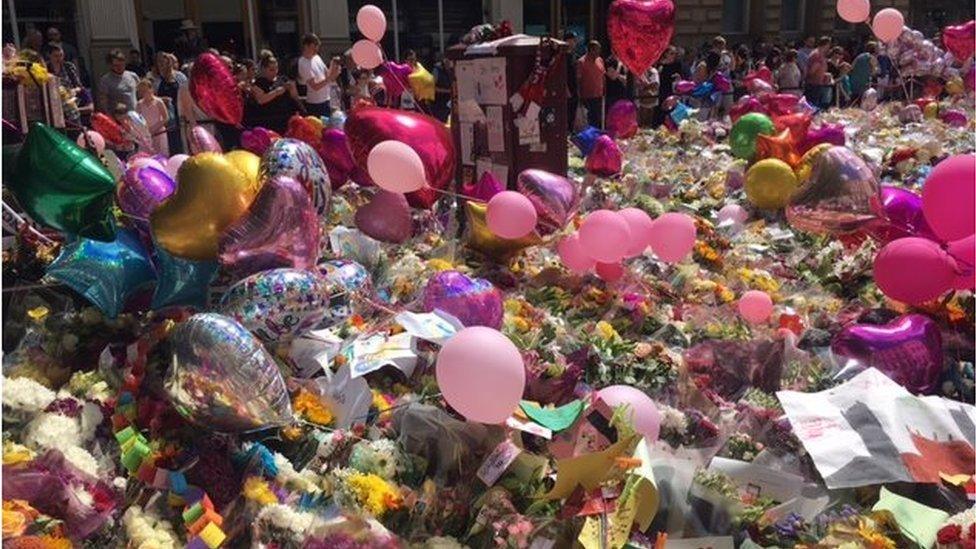
- Published26 May 2017
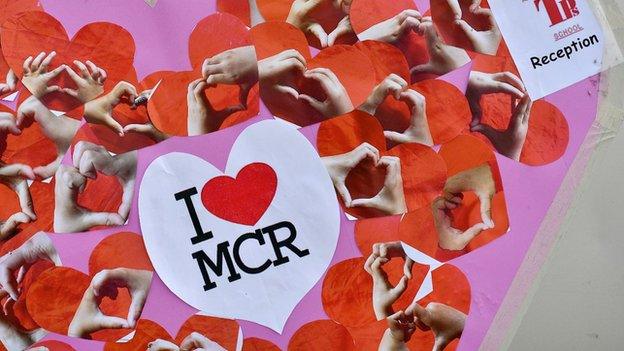
- Published27 May 2017
